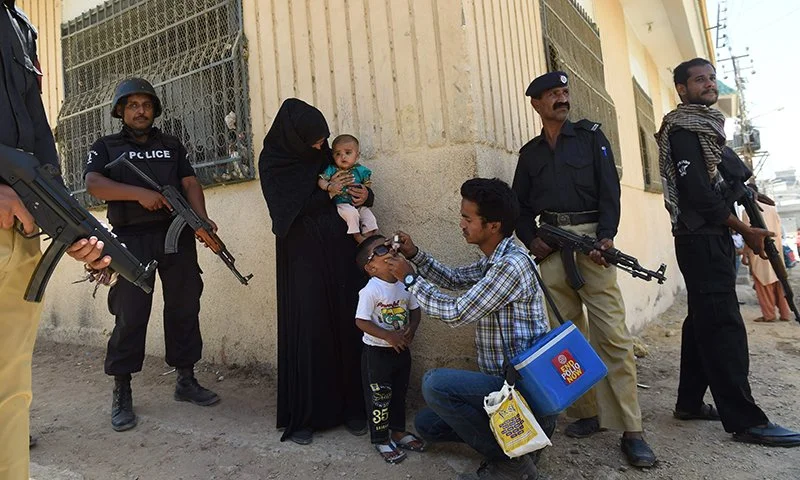Crippled by doubt: Tragedy of our endless battle against polio
By Nizamuddin Siddiqui
Despite decades of global progress, Pakistan remains one of the last two countries still battling polio, with fresh environmental samples revealing persistent transmission
STATE OF THE NATION
July 12, 2025
IF you were to ask me which is the most useless country in the world, I would, regrettably, name our very own Pakistan. This is because, as a nation, we have failed to accomplish what nearly every other country — including those in developing Africa — has managed to achieve: the eradication of polio. Consequently, our unfortunate infants remain at risk of being crippled by this dreaded disease.
In Pakistan, the issue does not even stir as much emotion as, say, a cricket match against India. That, truly, is tragic. We, as a nation, ought to be ashamed, for alongside Afghanistan, we are the only peoples who have not succeeded in tackling polio. Had we managed to do so, the entire world would by now be free of a disease that can leave children paralysed for life.
If what I have written above does not make your blood boil, the information given below should. Nigeria, the last country to be declared polio-free, achieved this milestone on 25th August, 2020. This also meant that the entire African continent was certified free from wild polio about five years ago. The declaration followed four consecutive years without any detected cases of wild poliovirus in Nigeria, with the last case recorded in Borno State in August 2016.
What is particularly shameful is that our failure is not due to a lack of resources or efforts, but rather the fact that some people are so opposed to vaccination that they even attack vaccinators — including female health workers. Why? Because they believe polio campaigns are the work of the “devious Western mind”. They think the drops administered to children to enhance their immunity against poliovirus either contain population control drugs or some kind of “spy chip”.
Unfortunately, during the final stages of the American hunt for Osama bin Laden, a polio vaccination team was indeed used to obtain DNA samples from his compound in Abbottabad, where the Al-Qaeda chief was later killed by American commandos. Admittedly, this incident demonstrated that a polio vaccination team can be used for purposes wholly unrelated to healthcare or humanitarian concerns.
However, it is important for every Pakistani to realise that attacks on polio vaccinators predate the Abbottabad episode. In this context, assaults on those who seek to eradicate a crippling disease — who should be supported, if not celebrated — appear to be the actions of madmen.
This past week, the latest survey revealed that out of 102 environmental samples collected across Pakistan, 30 tested positive for the virus, while 72 tested negative. According to a report by Dawn, the samples gathered from 69 districts were tested at the Regional Reference Laboratory for Polio Eradication at the National Institute of Health, Islamabad.
A breakdown of the results is as follows:
Khyber Pakhtunkhwa: 23 negative, 4 positive samples;
Balochistan: 17 negative, 3 positive samples;
Punjab: 20 negative, 6 positive samples;
Sindh: 8 negative, 14 positive samples;
Azad Jammu and Kashmir: 1 negative, 1 positive sample;
Islamabad: 3 negative, 2 positive samples.
A special vaccination campaign is now scheduled for this month in Diamer district and three districts of Khyber Pakhtunkhwa, targeting nearly 160,000 children. Additionally, a fractional IPV-OPV campaign will be conducted in seven selected districts of Balochistan in August, aiming to vaccinate approximately six million children.
What, then, does all this say about us as a nation, when the world has moved on but we remain shackled by superstition, misinformation, and violence against those who seek only to protect our children? Each positive sample is not just a statistic — it is a child at risk, a future potentially lost.
Until we collectively confront the ignorance and fear that fuel resistance to vaccination, Pakistan’s children will remain in the shadow of a disease that the rest of the world has consigned to history. At a time when the rest of the world has thrown the disease out of their communities, the question confronting us is not whether we can eradicate polio, but whether we have the courage and will to do so — before another generation is left to pay the price.
